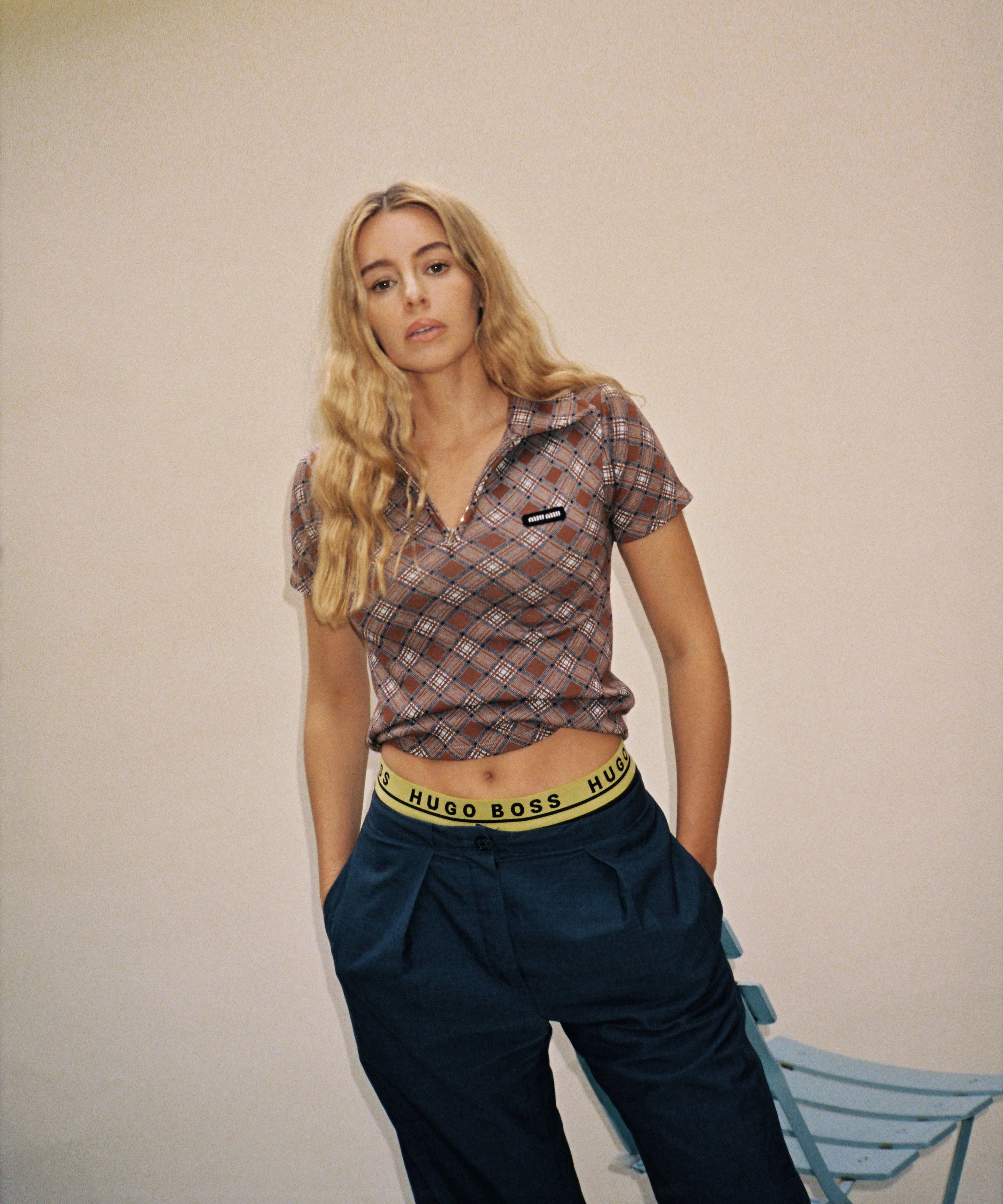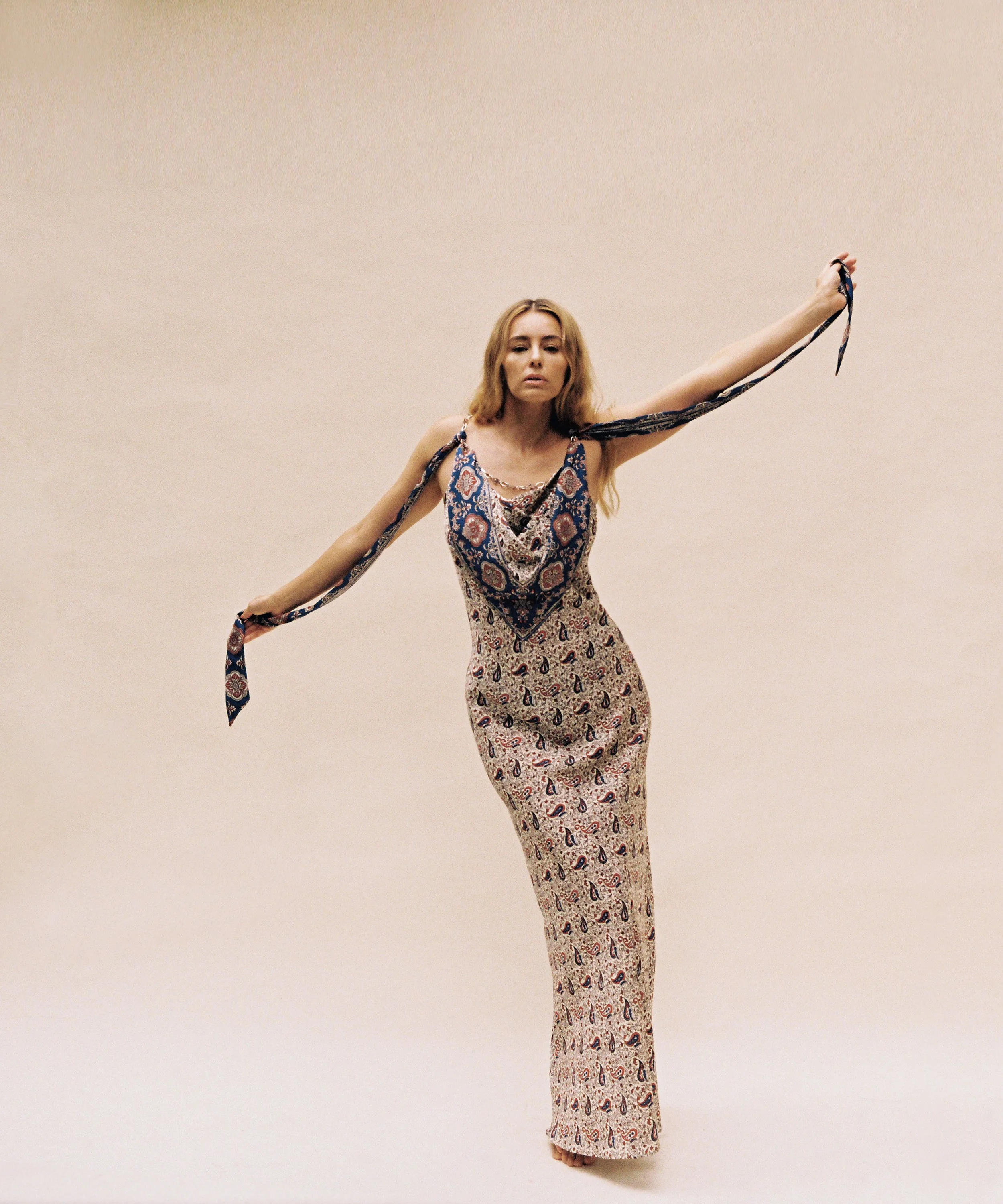IN CONVERSATION WITH KEELEY HAZELL
interview by JANA LETONJA
Actor, writer, author, and former model Keeley Hazell steps into a new spotlight with her upcoming memoir, ‘Everyone’s Seen My Tits: Stories and Reflections From an Unlikely Feminist’, out on 26th August. After rising to fame in the modeling world, Keeley made a bold pivot into acting, studying at the Lee Strasberg Film and Theatre Institute in Los Angeles. She went on to star in Apple TV+’s Emmy-winning ‘Ted Lasso’, as both actress and writer, and has appeared in ‘Horrible Bosses 2’, ‘Like Crazy’, and ‘The Royals’.
The title ‘Everyone’s Seen My Tits’ is bold, funny, and deeply personal. How did you land on it, and what did it mean to reclaim that phrase for yourself?
Thank you. It started as a joke, but then I quickly realized that it perfectly encapsulated the all-consuming feeling of being a teenager. When we’re young and something embarrassing happens, it literally feels likeeveryone on the planet knows about it. The hyperbole mirrors that sense of shame and intensity that defines adolescence. Once I realized that, I knew there could be no other title. And it was beyond freeing to reclaim it.
What was the most surprising or healing part of writing your own story in memoir form?
When I finished writing the book, moments after I put the last words on the page, I cried my eyes out, realizing, and this might sound strange, that my whole adult life, and the process of writing this book, had been about returning to my twelve-year-old self. It was the most surprising and healing part.
You write about feminism, class, and sexual politics through a very personal lens. What are some of the broader themes you hoped to explore with the book?
I wanted to write about the class system in the UK and gender in relation to that. This was my starting point, and I knew that using my personal story was the best medium for discussing these issues. In many ways, my life was merely the backdrop for discussing something bigger.
The phrase “unlikely feminist” in your subtitle feels both cheeky and profound. What does feminism mean to you now versus when you started out in the public eye?
Well, I didn’t know what the word feminist meant when I first started out in the public eye, so now I at least understand the meaning of the word. I think feminism is always about advocating for equality between the sexes, but for me now, it’s about removing shame and allowing women to make choices for themselves, having the means to make those choices without being at the mercy of a man, if that’s what she chooses, and eradicating the shame so many women carry.
Which essay or chapter was the hardest to write, and which one came pouring out without resistance?
The hardest essay/chapter to write was Daddy Issues, and it took me the longest. I joke that I took over a year to write Daddy Issues, and I wrote everything else in a week. But there’s some truth to it. Differences I wrote in ten minutes, and yet it took me over a month to write the opening line to Daddy Issues.
As someone who’s been both hyper-visible and often misunderstood, what myths or assumptions about you are you most excited to dismantle through this book?
There’s a photo of Marilyn Monroe from 1955, in which she’s reading ‘Ulysses’ by James Joyce. The most common question people still ask to this day is “Did she actually read the book?” The idea that you can look like Marilyn Monroe and read all those big words is something people couldn’t fathom, so I guess I’m excited to challenge the stereotypes and biases that are often made about women who are sexualized. But I’m also hyperaware that it doesn’t necessarily mean that they will be challenged, let alone dismantled. The least I can hope for is that people finally know I’m not from Bromley.
You’ve navigated both UK and US cultural landscapes. Have you noticed differences in how women are perceived, judged, or empowered across the two?
There are many similarities. Oppressive systems exist in both, and women are judged no matter where they live. But the US is a much more evangelical Christian country than the UK, and that shapes how women are viewed in large parts of society. Fundamentalist beliefs influence everything from gender roles to reproductive rights. In many parts of the US, those rights have been taken away from women, whereas in the UK, that’s largely not the case. That said, the UK has its own unique treatment towards women, particularly in the form of tabloid culture. The British media can be brutal, often fixating on their appearance, sexuality, and mistakes with relentless cruelty.
You were the inspiration for Keeley Jones in ‘Ted Lasso’. What was it like contributing creatively to a character partially based on you?
Honestly, it was challenging. A part of my life and identity was wrapped up in a character and a show I ultimately had no control over. It was painful to watch an actress emulate a version of me on screen, particularly when I hadn’t asked for it, and when the role had originally been written for me to play myself but went to someone else. When your own lived experience is being fictionalized, it’s hard to forgo authenticity and participate in a fantasy so closely linked to your real life. But yet, the show brings people so much joy and that feels gratifying.
If ‘Everyone’s Seen My Tits’ were adapted into a film or series, who would you want to play you?
Great question. If it’s me in 2025, then I’d probably want to play myself. If I were a younger me, then this might not be the sexiest answer, but I would like to pick an unknown actress straight off a council estate. The working class accounts for only 8% of the entertainment industry in the UK, yet it’s such an integral part of my identity and story, so I’d want someone raw who would usually be overlooked by the gatekeepers.
What do you hope women — especially younger ones navigating public scrutiny or sexualization — will take away from this book?
I hope they know that they’re not alone in their experiences and that they don’t need to feel ashamed for just existing. If sharing everything I’ve been ashamed or embarrassed by helps them feel less alone, then writing it was worth it.
CREDITS
photography GUY LOWNDES




